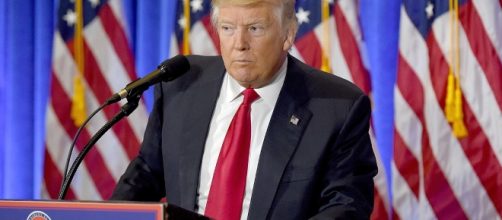President Trump has had an interest in autism and its causes for quite some time. This interest even put his young son, Barron, under fire, as the media started to question if the son of the 45th President was autistic. Whether the son of Donald and Melania Trump is or isn’t autistic is no one’s business and should have never been brought up in such a high-profile election. Organizations and health professionals, however, are making it their business, and are concerned with Trump’s interest in autism, and apparent lack of research into the matter.
Trump links vaccines to autism
Trump has been quoted for many years about his stand on Autism And Vaccines. The Associated Press stated that back in 2012 that Trump tweeted that "Autism rates through the roof--why doesn't the Obama administration do something about doctor-inflicted autism. We lose nothing to try." Trump continues to talk about autism and believes that there is a link between autism and vaccines.
I'm not against vaccinations for your children, I'm against them in 1 massive dose.Spread them out over a period of time & autism will drop!
— Donald J. Trump (@realDonaldTrump) September 4, 2014
He has even gone so far as to consider a commission to study autism and vaccines. Most recently, the Washington Post reported that Trump met with Robert J. Kennedy Jr., who also believes that vaccines play a part in autism, and asked him to head the committee.
Spokesperson Hope Hicks denied any appointment, stating that the two had met and discussed “a range of issues.”
Medical professionals worry about Trump’s statements
President Trump’s allegations about autism and vaccines have caught the attention of 350 organizations and medical professionals who have taken to pen and paper and contacted the President. According to WP, the letter began by stating, “Vaccines protect the health of children and adults and save lives.”
Those in the medical field believe that Trump’s statements and tweets about the “tremendous” rise in autism are largely inaccurate, claiming that the Centers for Disease Control stated in March that 1 in every 68 children have autism.
They claim those figures have not increased in two years. The CDC also claims that studies have shown that vaccines are safe if administered correctly.
Many agree that there should be more done for Autism Awareness, but that it should be in the form of ways to help those on the Autistic Spectrum. The Huffington Post suggests better services for both children and adults, and more funding for programs that are already established.

